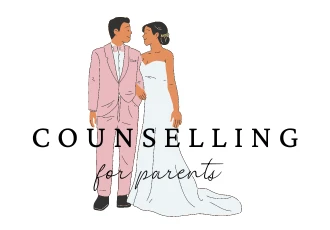Relationship Advice: How to protect your self esteem in your relationship

In my therapy practice I often see individuals excepting behaviours in relationships they would never advise a friend to accept, simply to due to the fear of rejection. One of the by-products of being a nice person is accepting less than you are worth just to either keep the peace, or to try to avoid the possibility of someone leaving you. Women and men who are more sensitive in nature (and let me note that sensitivity is not a bad trait) are the most likely candidates for this behaviour.
How much do you put up with in relationship?
In my therapy practice I often see individuals excepting behaviours in relationships they would never advise a friend to accept, simply to due to the fear of rejection. One of the by-products of being a nice person is accepting less than you are worth just to either keep the peace, or to try to avoid the possibility of someone leaving you. Women and men who are more sensitive in nature (and let me note that sensitivity is not a bad trait) are the most likely candidates for this behaviour.
Why do women often place their own needs last?
Many women in their 30s get drawn into the media hype surrounding age and babies and end up believing they must meet someone before it's too late to conceive. Others interpret failed relationships as a reflection of being unworthy or unloveable. In both instances, when such women meet a potential partner, they put up with much more than they normally would, out of fear the relationship might end.
What is acceptable compromise in a relationship?
All relationships need compromise, however there acceptable and non-acceptable compromise when it comes to protecting your self esteem and self worth.
Acceptable compromise
This type of compromise refers to behaviours such as accepting friends and family you may not get along with, accepting hobbies and passions you may not find interesting and giving up things you love during times when a partner needs support.
Unacceptable compromise
These compromises are very different and usually have a detrimental impact on your self esteem. For instance, compromising on being treated with respect (eg accepting your partner regularly ignoring you, or not considering your feelings and needs) or compromising on trust (eg accepting your partner having an emotional affair, or accepting your partners hot & cold feelings towards you based on daily moods).
Starting on the right foot
At the heart of every relationship there must be a strong foundation. Therefore, at the beginning of any new relationship you must be clear on your values and speak up when behaviours make you feel uncomfortable.
In all relationships, it's imperative to inform others of how you want to be treated. For instance, telling a friend you are not comfortable with her cancelling plans at the last minute regularly, or telling a child you don't appreciate being spoken to in an aggressive/sharp tone. These boundaries should not be compromised. When you allow yourself to regularly be treated with disrespect, you never feel good about it, regardless of how well you try to convince yourself there is an excuse or reason behind certain behaviours.
The key ingredient necessary here is self respect
When you respect and value yourself, you feel confident enough to trust that you will always have people who love you in your life. Thus, if others will only be with you if you devalue yourself, you can walk away with confidence. Don't allow fear to dictate how you should be treated in any relationship. Respect yourself first! By all means give of yourself to care for others, but never compromise on self respect and trust. You deserve more.
If you're currently experiencing problems in your personal life or want more information regarding this article, please contact the contributor.
